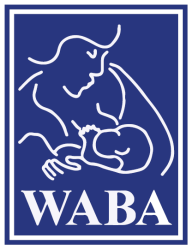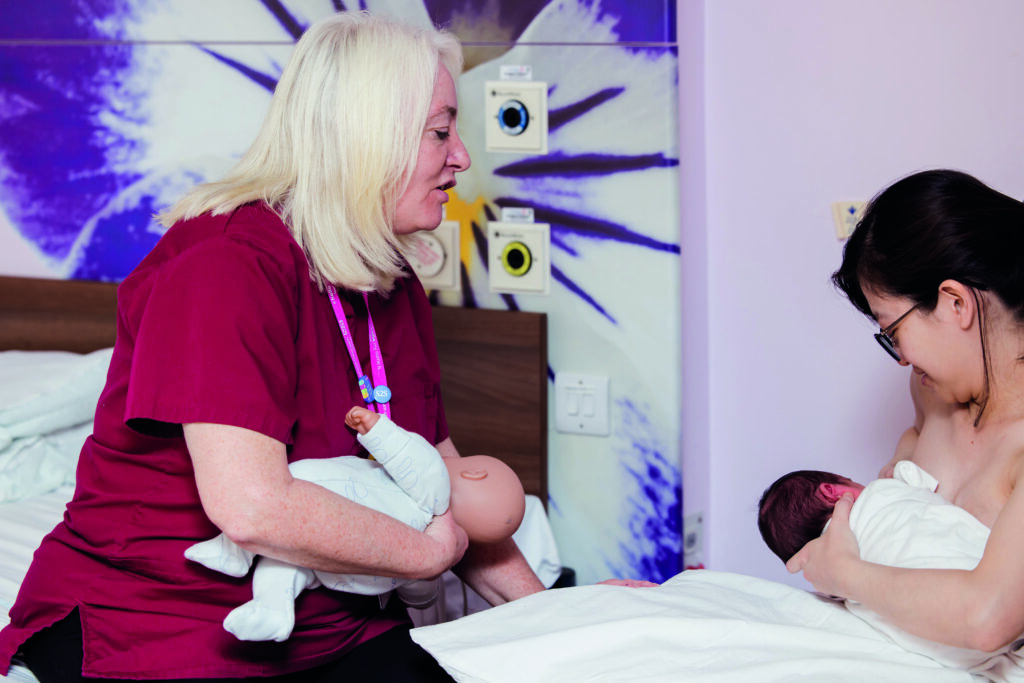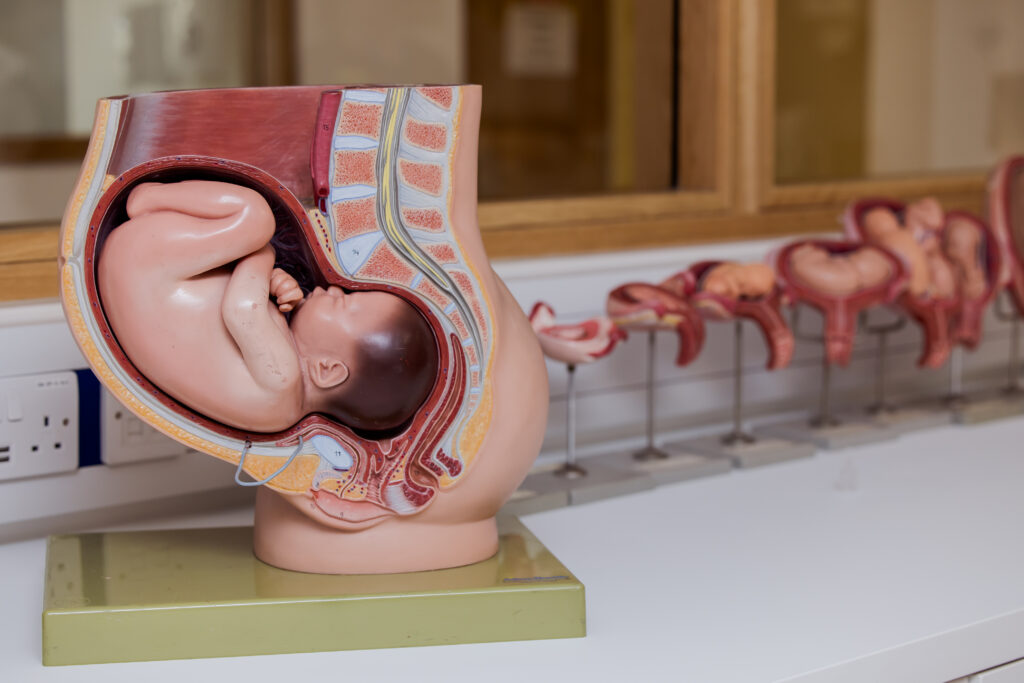To commemorate World Breastfeeding Week 2025, MIDIRS Search Pack of the Month for August is ‘Midwives and Healthcare Professionals’ Role in Breastfeeding Promotion and Support’.
Every year, in the first week of August, World Alliance for Breastfeeding Action (WABA) – in partnership with the World Health Organisation and UNICEF – coordinate a global campaign aiming to protect, promote and support breastfeeding globally.
Since 2016, WABA has aligned the week’s theme with the United Nation’s Sustainable Development Goals. This year, the theme is ‘Prioritise Breastfeeding: Create Sustainable Support Systems’, a call to action to build lasting support for breastfeeding mothers. It connects to Thematic Area 3 of the Sustainable Development Goals – Environment and Climate Change.
 WABA hopes that this World Breastfeeding Week, mothers, families and maternity professionals will learn more of their role in supporting breastfeeding to create a sustainable environment whilst simultaneously reducing the impact of artificial feeding on the climate. The alliance released this statement on their website, describing how breastfeeding contributes to a more sustainable future:
WABA hopes that this World Breastfeeding Week, mothers, families and maternity professionals will learn more of their role in supporting breastfeeding to create a sustainable environment whilst simultaneously reducing the impact of artificial feeding on the climate. The alliance released this statement on their website, describing how breastfeeding contributes to a more sustainable future:
“Breastfeeding is a natural, renewable food that is environmentally safe. Breastfeeding is produced and delivered without pollution, packaging or waste and is the sustainable solution that is good for the planet and its people. Prioritising and supporting breastfeeding will reduce the growing climate impact of artificial infant feed supply chains.”
They go on to acknowledge, however, that breastfeeding can be difficult for families, particularly when they are unsupported by communities, individuals, and professionals.
“Breastfeeding can be challenging when parents are not fully supported. World Breastfeeding Week 2025 will outline the roles and connect the actors in the Warm Chain of Support for Breastfeeding to create a breastfeeding-friendly environment together at all levels; national, health, workplace and community. By connecting the actors working at different levels, a synergistic effort to support the parents will be in place.”

WABA highlights the vital role that maternity professionals play in creating an environment where breastfeeding is supported, valued, and sustained. As the first point of contact for many parents, midwives and maternity support workers can influence breastfeeding outcomes through informed, compassionate care. By offering evidence-based guidance and ensuring that families have access to the support they need, maternity professionals help to lay the foundation for a more sustainable future.
Our Search Pack of the Month for August is an excellent resource for discovering the latest research and practical advice on the ways in which midwives and healthcare professionals can encourage and sustain breastfeeding practices. The Pack includes over 800 research articles covering topics like appropriate language, nutritional advice, and counselling, and links to case studies from communities around the globe.
Access August’s free Search Pack below, and if you would like to access more resources, a MIDIRS subscription allows full access to the MIC database, then largest midwifery-specific research database globally, as well as over 550 pre-packaged Search Packs.
*NOTE: Access to the Search Pack for free has now ended. To access our Search Pack of the Month for free, please head to the Blogs, News and Views section of our website. To access the ‘Midwives and Healthcare Professionals’ Role in Breastfeeding Promotion and Support’ Search Pack, plus many more and our whole Maternity Infant and Care database, please consider subscribing to MIDIRS.*
Plus, take a look back at articles discussing the role of maternity professionals in supporting breastfeeding that have featured in past editions of MIDIRS Midwifery Digest:
‘The Breastfeeding Solution Circle: supporting breastfeeding mothers to make successful, long term breastfeeding a reality’ Sioned Hilton (December 2010)
In recent years there has been a major push to position breastfeeding as the norm for infant feeding – influencing a shift from initiating with infant formula to putting the baby to the breast in the first instance (Bolling et al 2007). In the UK, despite the fact our initiation rate remains high, with an average of 70% of mothers breastfeeding in the early days, this figure dramatically declines following the first two week period. Sadly, only 25% of mothers continue to exclusively breastfeed to the recommended six months (Bolling et al 2007). This is a staggering drop and one which calls for further understanding if we are to make improvements. The Breastfeeding Solution Circle supports breastfeeding mothers from the moment of conception through to weaning. The continued research underpins our current knowledge and the development of a range of products to support the continuation of breastfeeding from the perspective of the mother and the baby. Expertise, excellence and innovation are at the very core of the solution circle and capture the work of lactation experts and researchers worldwide.
‘Supporting breastfeeding: it takes a whole community’ Susan Way, Alison Taylor, Joyce Miller (December 2015)
In collaboration with the Anglo European Chiropractic College (AECC), the Faculty of Health and Social Services at Bournemouth University hosted a conference in July 2015 to raise awareness of the Joint Chiropractic, Midwifery Newborn Feeding Clinic. The interprofessional approach to facilitating a student-led, newborn infant feeding clinic is an innovative and unique opportunity to provide a positive learning environment for students as well as improve sustained breastfeeding rates for women; a current public health challenge. Learning from skilled, qualified practitioners in a real time practice environment has the ability to enrich the student educational experience. It was felt that a one day interprofessional conference to share good practice from the clinic and listen to the views of women and students would provide a springboard to ensure the clinic continued to meet the needs of those using the facilities.
‘Breastfeeding is a public health priority. Why are we so bad at it?’ Melody Rich (June 2023)
The promotion of breastfeeding initiation and continuation is a global public health priority identified by the World Health Organization (WHO) which set, at the 56th World Health Assembly in 2012, a target to ‘increase the rate of exclusive breastfeeding in the first six months up to at least 50%’ (Victoria et al 2016:486). The tools in use to help achieve this goal include the UNICEF Baby-Friendly Initiative: an international accreditation programme promoting practices that support breastfeeding through a number of channels, including clinical practice, policy development, and campaigning for social and commercial change. Currently 91 per cent of United Kingdom (UK) maternity units have achieved or are working towards Baby-Friendly accreditation (UNICEF 2018a). One of the effects upon UK policy has been the incorporation of monitoring breastfeeding as a specific indicator of health improvement within the Public Health Outcomes Framework. This requires local authorities to prioritise breastfeeding support locally with the aim of increasing breastfeeding initiation and prevalence (Public Health England 2022).
To read these papers in full, plus hundreds more midwifery-related articles, subscribe to MIDIRS and access our full MIC database, as well as our quarterly Digest.


